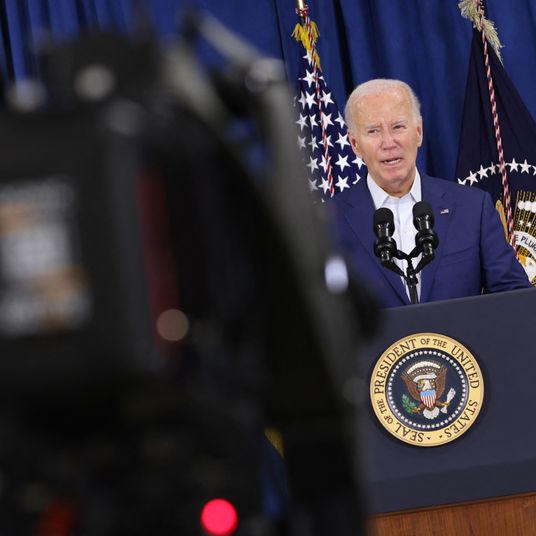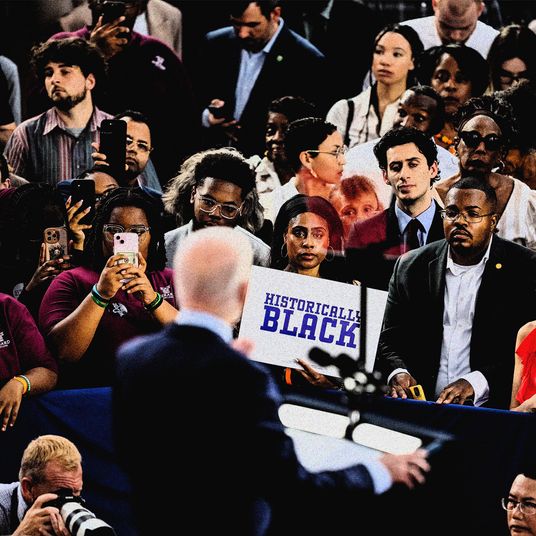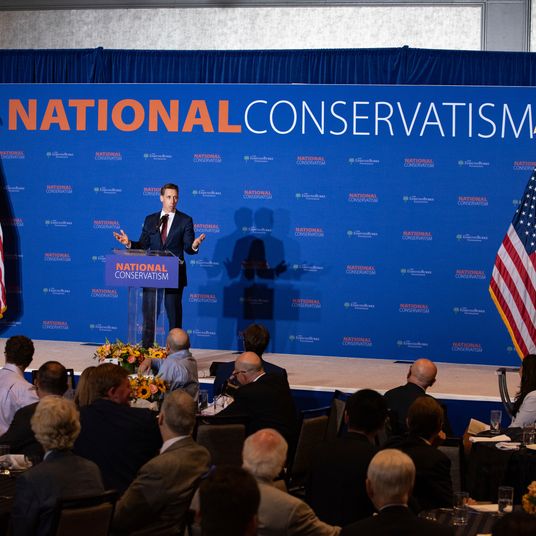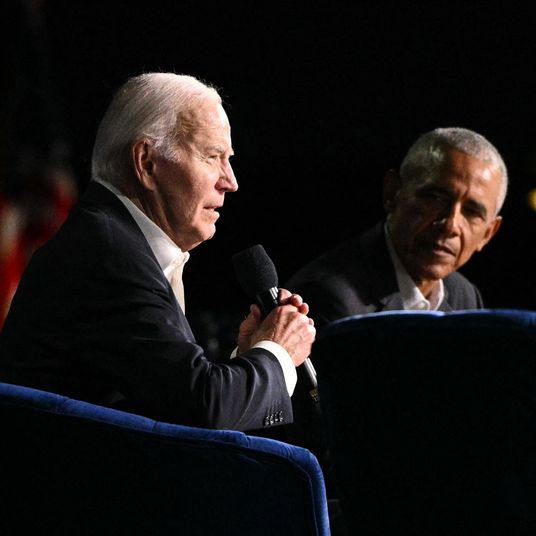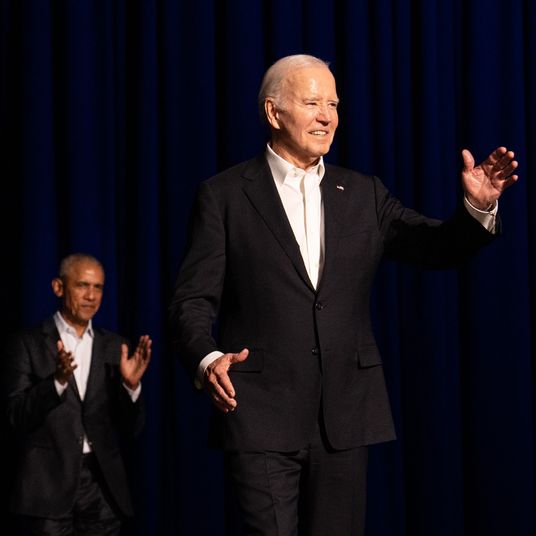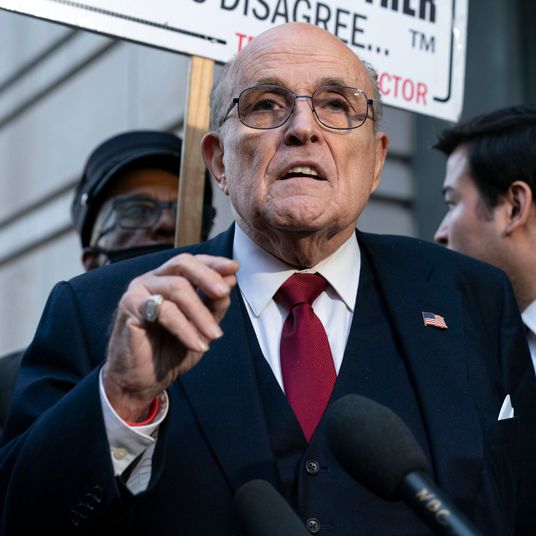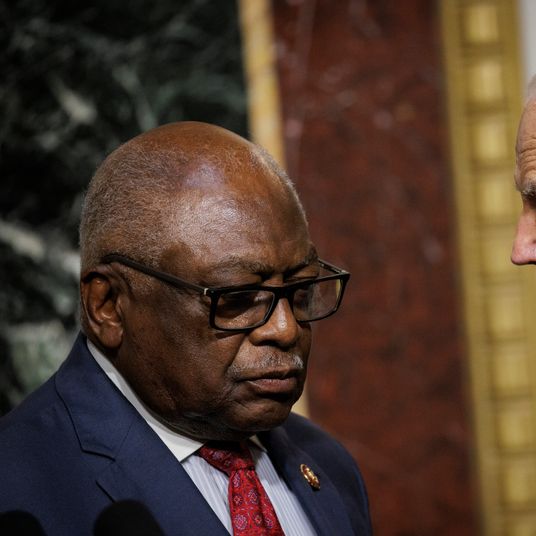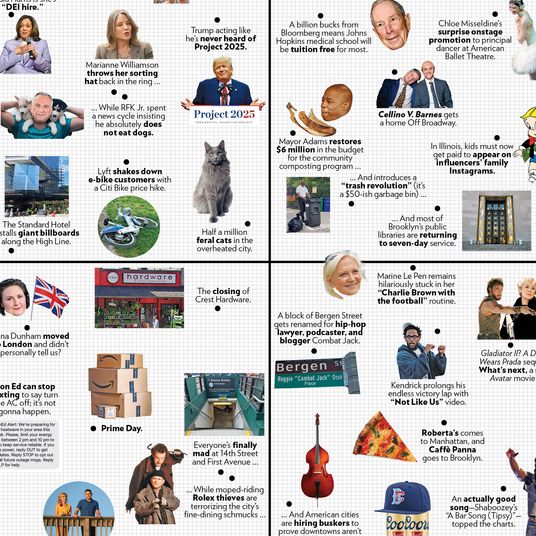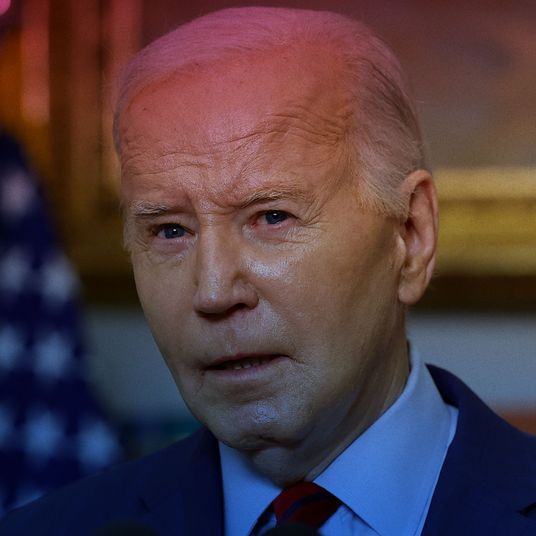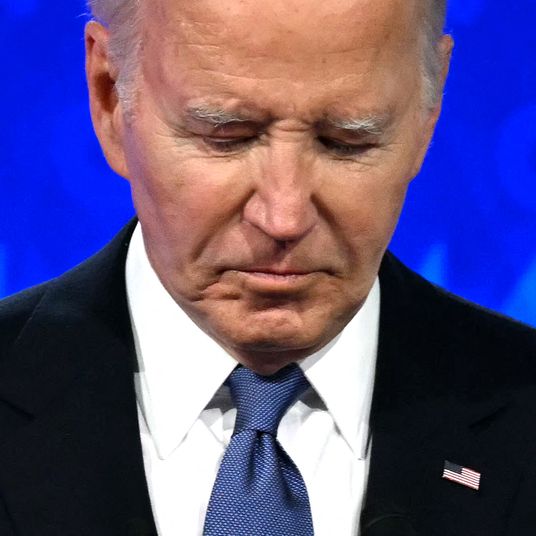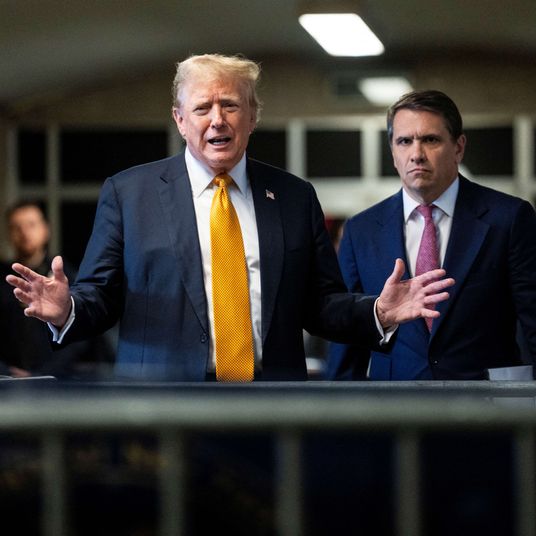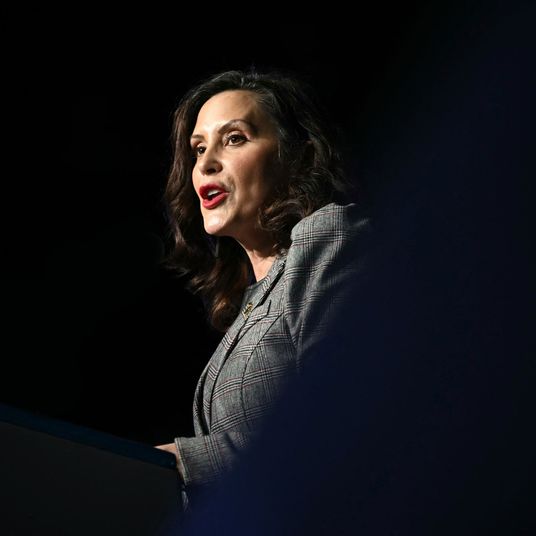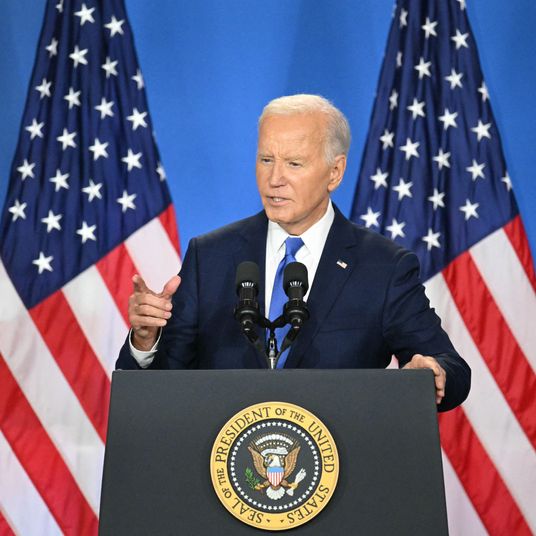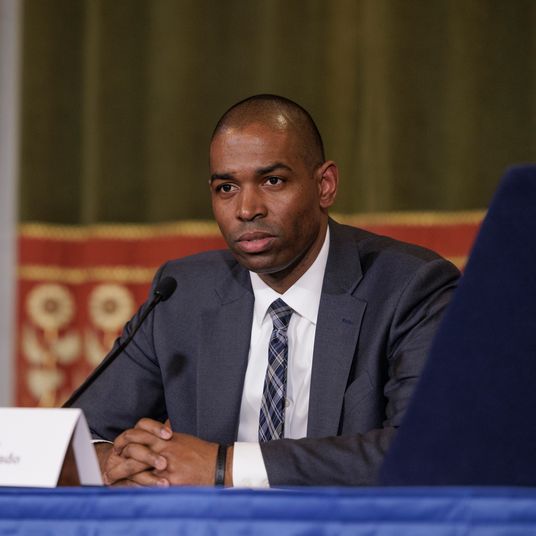
Despite the incredibly high stakes of the 2024 presidential election, polling on Joe Biden versus Donald Trump has been exceptionally stable and apathy seems to be the prevailing mood among undecided voters. Among political journalists there is, understandably, a longing for game-changing events that will give this rematch a clearer narrative and a more certain outcome. So some are hyping the earliest presidential general-election debate in history as the moment we’ve all been anticipating, as this Associated Press preview reflects:
Both men have glaring flaws that present their opponent with tremendous opportunity and risk. They will face a huge national audience that will include many people tuning into their 2020 rematch for the first time and who won’t see another debate until September, magnifying each success or mistake.
This expectation flows, in part, from the belief that the Biden campaign must be getting desperate. Otherwise why would Biden gamble on such an early debate? (The incumbent’s camp clearly pitched the unusual event, forcing Trump to put up or shut up after his incessant claims that Biden was afraid to debate him.) Indeed, it’s become an article of faith in some precincts of the MAGA fever swamps that Democrats want to see if Biden will implode or survive on the debate stage before they make the fateful decision as to whether he will be asked to “step aside” (pro tip: This isn’t happening).
No one knows exactly why Biden’s campaign pushed for an early debate. But panic is not a plausible explanation; ask any Democrat who fears Team Biden has been too calm and complacent. And while the president will surely hope for a good outcome at the CNN-sponsored debate in Atlanta, it’s unlikely he is under the illusion that he’ll have a chance to land a knockout punch.
Political scientists have long concluded that debates rarely have a big and enduring impact in the general election. They are much more significant during presidential primaries, particularly when there is no incumbent or clear front-runner. To the limited extent that general-election debates matter, they tend to be the initial debates between the two contenders, where viewership is high and familiarity with the candidates is relatively low.
Even though the June 27 debate is the initial encounter of this cycle, it’s not like a Biden-Trump debate is any sort of novelty; they met twice in 2020 and are the ultimate known quantities. Back in 2020, most observers thought Biden easily won the first debate over a blustery Trump, while the second debate was more of a standoff. But it’s hard to say either debate really mattered when voters voted. And barring some calamitous misstep by one of the candidates, it’s hard to envision this one mattering much either. While one candidate could get a polling “bounce” from a relatively strong debate performance, it will almost certainly subside quickly following other campaign events, like the two conventions. One debate feature that might have had an impact disappeared when independent candidate Robert F. Kennedy failed to make the cut for participation. So instead it’s the same two old men renewing a familiar rivalry.
Lack of novelty notwithstanding, interest in the debate is not limited to pundits and political analysts: a new Associated Press-NORC poll shows high interest generally:
About 6 in 10 U.S. adults say they are “extremely” or “very” likely to watch the debate live or in clips, or read about or listen to commentary about the performance of the candidates in the news or social media.
The poll suggests tens of millions of Americans are likely to see or hear about at least part of Thursday’s debate despite how unusually early it comes in the campaign season. Both Biden and Trump supporters view the debate as a major test for their candidate — or just a spectacle not to miss.
The bigger picture is that the intense desire for election drama is playing out against a background of regular evidence that voters’ preferences will be hard to move and sometimes not easy to measure. Many Democrats and Never Trump Republicans have had to rethink two developments widely expected to tilt the playing field toward Biden: the incumbent’s now-vanished financial advantage and Trump’s trial and felony conviction in Manhattan, which materially contributed to Trump’s recent fundraising bonanza. At the same time, Trump backers are serially exaggerating his strength in the polls, partly to reinforce their claims that the Biden administration is engaged in a panic-ridden resort to “lawfare” via his many legal problems and perhaps even to lay the groundwork for another challenge to another defeat.
Unfortunately for both campaigns, the 2024 presidential election looks like a grim and remorseless battle between two large and immovable electoral blocs with murky turnout patterns ultimately mattering as much as the decisions of largely unhappy swing voters. That doesn’t mean the June 27 debate isn’t worth watching for those who are civic-minded enough to feel some obligation to tune in. But no one should count on knowing the country’s fate on June 28.
More on politics
- Trump Assassination Attempt Suspect Identified: Live Updates
- The Secret Service Agent Who Caught a Bullet for Reagan on the Trump Shooting
- Republican Lawmakers Immediately Blame Biden for Trump Shooting








